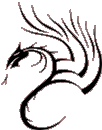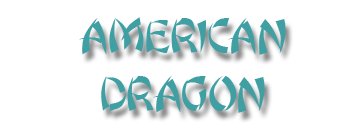POINT: UB-23 (URINARY BLADDER-23)
| English: | Kidney Shu |
| Also Known As: | Kidney's Hollow |
- 1.5 cun lateral to the lower border of the spinous process of the second lumbar vertebra.
- Locate at the visible highest point of the paraspinal muscles.
- 1.5 cun lateral to DU-4 Mingmen at the level of lower border of the spinous process of the second lumbar vertebra.
- Oblique or perpendicular-oblique insertion towards the spine 1 to 1.5 cun.
- Caution: deep perpendicular needling carries a risk of injuring the Kidney.
- Straight insertion pointed slightly toward the spine, 1.5 to 2 cun. Sensation: distention in the lower back or an electric, numb sensation extending toward the buttocks and lower extremities.
- Caution: Care should be taken not to insert the needle too deeply, or away from the spine, to avoid puncturing the Kidneys.
- Puncture perpendicularly 1 to 1.2 cun.
- Moxibustion is applicable.
- Back-Shu point of the Kidneys
- Tonifies the Kidneys
- Fortifies Yang
- Benefits Jing
- Nourishes Kidney Yin
- Regulates Kidney Qi
- Strengthens the Kidneys' function of receiving Qi
- Firms Kidney Qi
- Regulates the water passages
- Regulates the Lower Jiao
- Benefits urination
- Resolves Dampness
- Benefits and warms the uterus
- Benefits the ears and eyes
- Strengthens the lumbar region
- Nourishes Blood
- Benefits bones and marrow
- Tonifies Yuan Qi
- Expels urinary stones
|
|
UB-15 |
||
Cold in the lower extremities |
Cold and pain in the bone marrow |
Weakness of the Kidneys and lumbar region accompanied by seminal emission |
UB-24 |
UB-40 |
DU-4 |
Lumbar pain |
Lumbar pain due to Kidney Deficiency |
Lumbar pain in the elderly Incontinence of urine a feces in the elderly (moxa) |
LIV-13 |
UB-25 |
UB-21 |
Invasion by Cold or Damp diarrhea containing undigested food in the stool |
Cold or Damp diarrhea with undigested food in the stool |
Vomiting or Cold in the Stomach with distention and much eating but remains thin |
LIV-3 |
REN-4 |
|
Deficiency-taxation edema (moxa) |
Seminal emission White turbidity |
Impotence |
GB-26 |
||
Genital pain |
Irregular menstruation |
Ceaseless uterine bleeding |
GB-2 or |
SI-19 |
|
Deafness due to Kidney Deficiency |
Deficiency tinnitus |
Tinnitus |
ST-3 |
REN-3 |
|
Fullness of the chest and lateral costal region radiating to the abdomen |
Chest and diaphragm obstructed by Blood Stasis Congealed Blood in the chest and abdomen |
Nephritis |
UB-28 |
UB-28 |
|
Urinary tract infection |
Diabetes |
Damp-Heat in the Lower Jiao |
LIV-13 |
UB-20 |
|
Cold diarrhea with undigested food in the stool |
Promotes the formation of Blood to treat Blood Deficiency |
|
- This is the main point to tonify the Kidneys.
- This is one of the principle points to strengthen the Kidneys, fortify Yang, nourish Yin and benefit Jing.
- It tonifies the mind, stimulates initiative, liftss depression and strengthens will power.

